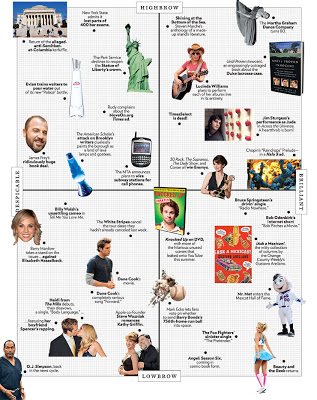James Flynn’s conclusion that IQ scores all over the world had gone up by one standard deviation over 50 years or so (the Flynn effect) was one of the great psychological discoveries of the 20th century. It showed more clearly than anything else that everyday life can have a big effect on IQ, contrary to what many claimed.
In a new book called What Is Intelligence? Beyond the Flynn Effect Flynn takes this discovery as a starting point. After reading it, I could see there are three broad classes of explanation:
1. Events fed on themselves to promote certain abilities. To illustrate the dynamics, Flynn gives the example of basketball. As basketball became more popular, more people watched basketball, more people played basketball, and the rewards possible from basketball went up. All this increased the average level of play.
2. The trend of the last 50 years is a continuation of very long-term trends affecting those of high and low IQ roughly equally.
3. During the last 50 years, some environmental features were “fixed” — not everyone was reaching full potential. Better nutrition is the obvious example — nutritional deficiencies were corrected. This explanation is discussed briefly.
These three classes of explanation correspond to different expectations about how the distribution of IQ scores has changed. The first suggests that the high end (e.g., 75th %ile) increased more than the low end (e.g., 25th %ile). This is surely the case with basketball ability. The second means that that whole distribution has shifted. The third suggests that there will have been more improvement at the low end of the distribution than at the high end. Flynn does not make clear what the data show.
To the question, “were our (lower-IQ) ancestors sort of stupid?” Flynn answers yes. He quotes interviews with Russian peasants. Asked what dogs and chickens have in common, the answer was nothing. Asked what fish and crows have in common, again the answer was nothing. “Sort of stupid” is a harsh way to put it — and obviously they had many skills we have lost — but with the New York Times archives online, you can judge for yourself. Here is the opening of a 1937 review of Eleanor Roosevelt’s autobiography:
You pick up this book in the acute–and of course inevitable–consciousness that it is the autobiography of the wife of the President of the United States.
That sounds to me like a Spy parody.
I am less interested than Flynn in the question of the title. Intelligence is an everyday word with a meaning most of us know well; and it has also been used by psychologists to label what IQ tests measure (which is reasonable; it’s just an abbreviation). I find it hard to get interested in questions about definitions. Asking how to define this or that word is like asking how much cumin or cinnamon or whatever to put into a dish. It matters, but not very much. Definitions, like recipes, are man-made tools. Questions about cause and effect — such as what caused the Flynn effect — interest me more.
The dust jacket calls Flynn “a psychologist” but he’s a philosopher by training. “I am too much in love with philosophy to collect data or do field studies,” he writes. As a non-nutritionist who has written about nutrition (Chandra, the Shangri-La Diet, omega-3), his out-of-field success pleases me.




